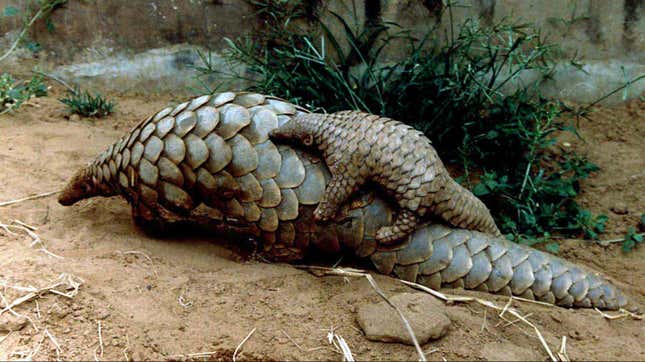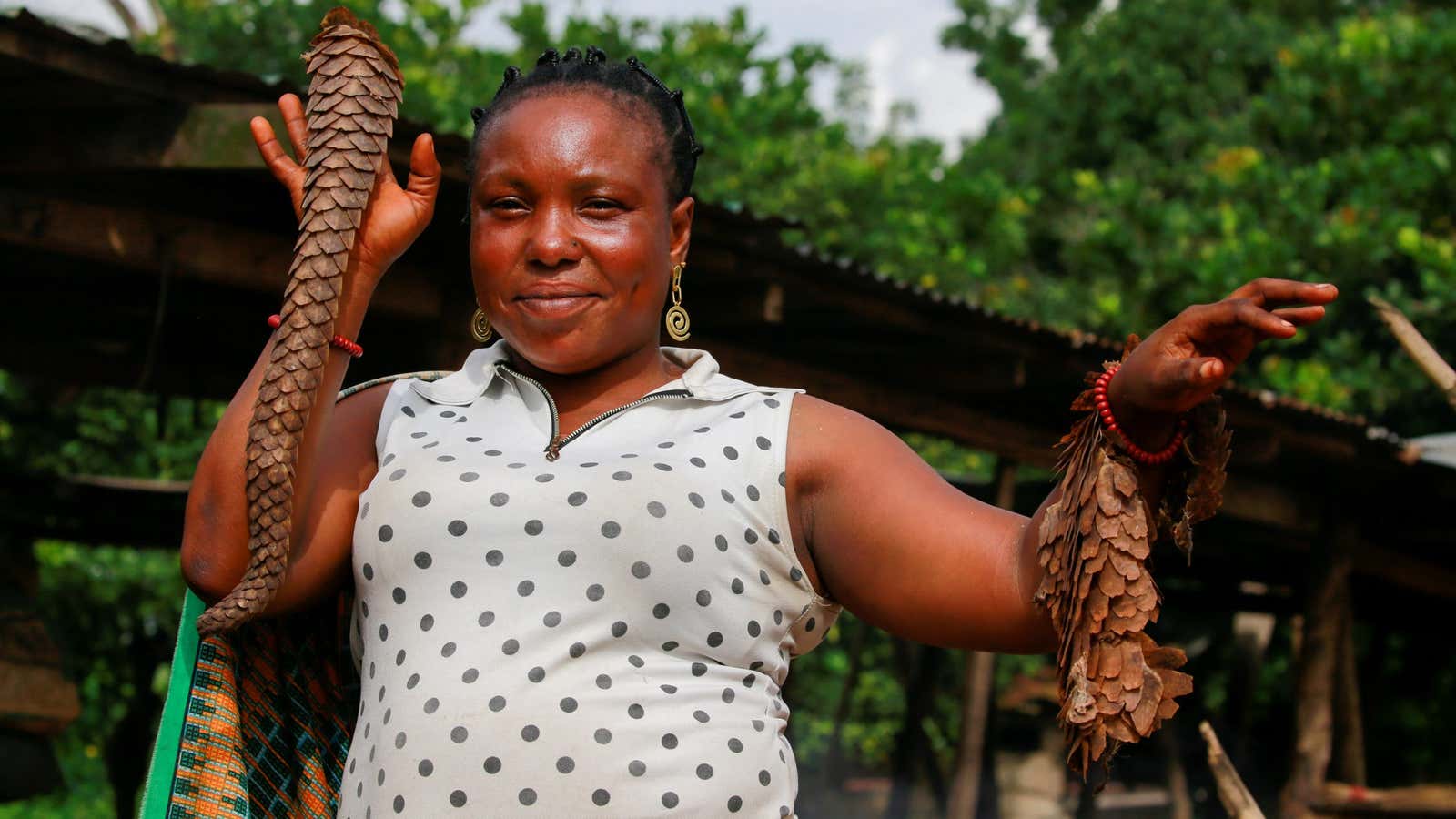Since scientists learned the coronavirus (Covid-19) might have origins with bats and potentially spread to humans through pangolins in a wildlife market in Wuhan, China, Chinese authorities have closed down or put under quarantine about 20,000 wildlife farms to curb wildlife trade. Vietnam is considering a similar ban.
This drastic action by China, the largest market of pangolin in East Asia is getting commendation globally from wildlife conservationists. However, they are concerned Nigeria, one of the largest pangolin trade hubs in Africa has not reacted to these reports. An investigation into pangolin trafficking found Nigeria was linked to 55% of pangolin scales seized global between 2016 and 2019.
The trade of pangolin, an endangered scaly ant-eating animal has been of concern for many wildlife conservation groups as it is the most trafficked mammal in the world. In China and Vietnam, the pangolin is valued for its scales—which are used to make medicines—as well as for its meat.
WildAid, another organization that works to increase public support for wildlife conservation in Africa, is also urging Nigeria to join China in closing down live wildlife markets and crack down on its bushmeat trade to prevent another disease outbreak. Locally, bushmeat refers to wild animals hunted or caught in forests, and can range from large bush rats to antelopes. It is often smoked, cooked in stews and served with meals as a delicacy.

“The coronavirus outbreak has finally made us recognize that conservation is a public health issue,” says WildAid CEO Peter Knights. “China is now taking the right steps by closing wildlife markets, increasing penalties, strengthening enforcement and improving public education to dissuade wild meat consumption. Ideally, Nigeria should follow suit by shutting down the bushmeat trade, and protect endangered pangolins.”
Though Nigeria already has a penalty of $2.70 fine (for a first-time offense) for hunting or selling a pangolin it is viewed as being highly inadequate as a deterrent measure for a global trafficking hub. This is especially true when compared with other African countries with less trade volume. Uganda, for instance, has a stringent law that includes penalties of up to life imprisonment and/ or fines up to the equivalent of $5.4 million for certain wildlife crimes.
“The administration of laws and regulations to nip the [pangolin] trade has so far been ineffective due to limited funding and the intractable nature of the trade,” says Stephen Aina of the Nigerian Conservation Foundation (NCF).
Open market trade of pangolin bushmeat has dropped in local markets in Gabon’s capital Libreville due to fear of coronavirus transmission, according to a recent report. But in Nigeria there has been little impact on sales so far, says Aina.
“Pangolins are still consumed as edible meats in the rural communities, in the same way, wildlife trade was unabated during the Ebola epidemic.”, he said. “In fact, the notion of adding a few drops of red palm oil to prepare wildlife meats as a measure to kill any foreign virus gained prominence during the Ebola epidemic in Africa”, he added.
Fears around the pangolin’s link to coronavirus was reported by scientists in China who believe the mammal was the most likely intermediate host from which humans contracted the novel coronavirus. The pangolin-vector claim was made public on Feb. 7 by researchers at South China Agricultural University who said they found the genome sequence of the coronavirus separated from pangolins to be 99% identical to that collected from infected people.
There are speculations that the ban on wildlife trade in China will be permanent. Nevertheless, Pangolin trafficking may still flourish in Nigeria because while China dropped to be the primary destination for pangolin from Nigeria only in East Asia in May 2018, Vietnam has since then been the primary destination for pangolin from Nigeria worldwide.
Sign up to the Quartz Africa Weekly Brief here for news and analysis on African business, tech and innovation in your inbox
